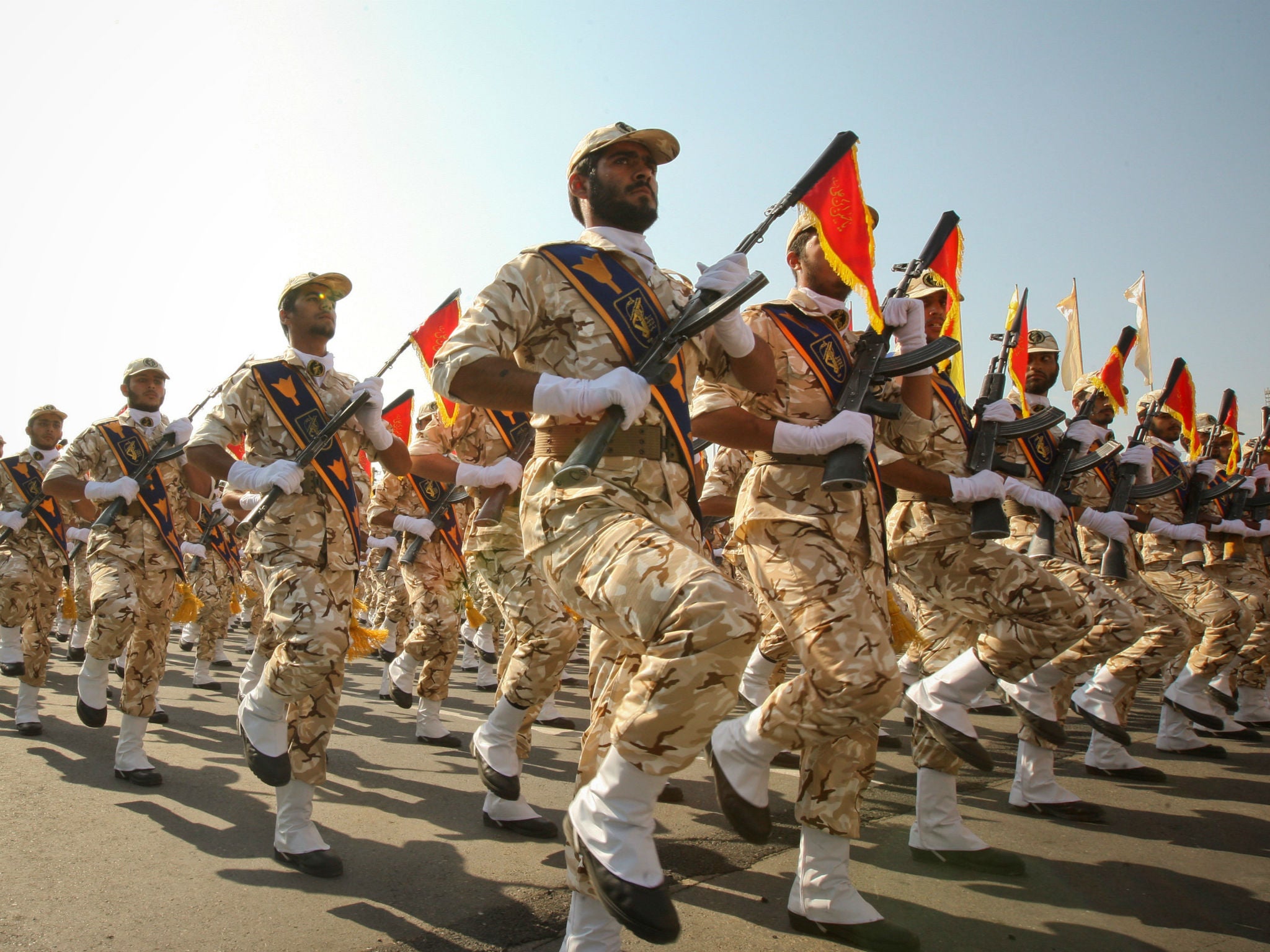Trump administration hits Iran with new sanctions after exiting nuclear deal
America adopts a more aggressive posture towards Iran after abandoning deal

Your support helps us to tell the story
From reproductive rights to climate change to Big Tech, The Independent is on the ground when the story is developing. Whether it's investigating the financials of Elon Musk's pro-Trump PAC or producing our latest documentary, 'The A Word', which shines a light on the American women fighting for reproductive rights, we know how important it is to parse out the facts from the messaging.
At such a critical moment in US history, we need reporters on the ground. Your donation allows us to keep sending journalists to speak to both sides of the story.
The Independent is trusted by Americans across the entire political spectrum. And unlike many other quality news outlets, we choose not to lock Americans out of our reporting and analysis with paywalls. We believe quality journalism should be available to everyone, paid for by those who can afford it.
Your support makes all the difference.Following through on Donald Trump’s move to pull America from a nuclear arms control deal, the Treasury Department announced a new round of sanctions on Iran.
Officials announced a joint effort with the United Arab Emirates to stifle payments to Iran’s Islamic Revolutionary Guard Corps (IRGC), which spearheads the regime’s backing of proxy groups around the region. They accused the Iranian Central Bank of actively maintaining the flow of money.
“As I said following the President’s announcement on Tuesday” that America would withdraw from the nuclear pact, “we are intent on cutting off IRGC revenue streams wherever their source and whatever their destination”, Treasury Secretary Steven Mnuchin said in a statement.
The sanctions target what officials called an elaborate currency exchange network sustaining Iranian clients in conflict zones.
As the Trump administration moved to a more confrontational stance towards Iran, Israeli launched its most intensive assault yet on Iranian positions in Syria in retaliation for what its military called an Iranian rocket attack on its troops in the Golan Heights. The White House responded by condemning Iran’s “provocative rocket attacks” and upheld Israel’s right to self-defence.
The Iran deal was the centrepiece of Barack Obama’s foreign policy. In the years since its passage the world had begun to ease economic penalties on Iran as the country was certified as being in compliance.
But Mr Trump has long derided the agreement, arguing it rewards a state that continues to sponsor terror and export instability in the Middle East. He found backing from congressional Republicans.
The White House accused the Iranian regime of acting in “bad faith”, citing Israeli intelligence that detailed the country’s past efforts to develop nuclear arms. Israeli president Benjamin Netanyahu unveiled those findings in a dramatic public appearance last month.
“This was a horrible, one-sided deal that should have never, ever been made”, Mr Trump said earlier in the week, denouncing the Iranian regime as “the leading state sponsor of terror”.
Both European leaders and Iranian president Hassan Rouhani said Tehran have pledged to continue abiding by the deal, presenting the possibility of isolating the US.
National security adviser John Bolton argued in a Washington Post op-ed that the deal “actually undermines the security of the American people”, noting that since signing the pact Iran had “poured billions of dollars into military adventures abroad, spreading an arc of death and destruction across the Middle East from Yemen to Syria”.
Withdrawing “reversed an ill-advised and dangerous policy and set us on a new course that will address the aggressive and hostile behavior of our enemies, while enhancing our ties with partners and allies”, Mr Bolton wrote.
Join our commenting forum
Join thought-provoking conversations, follow other Independent readers and see their replies
Comments